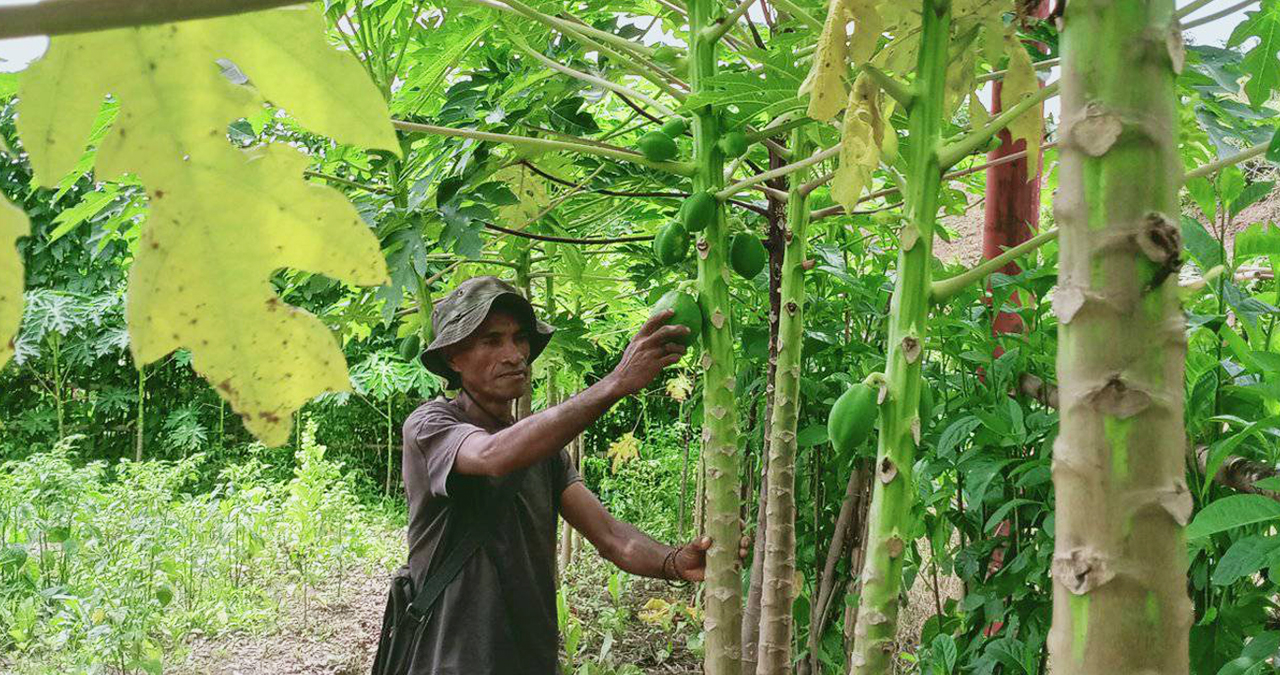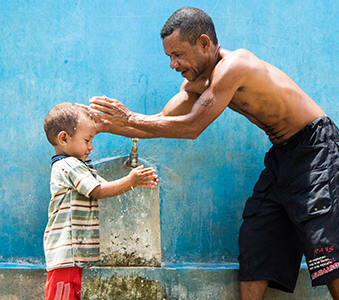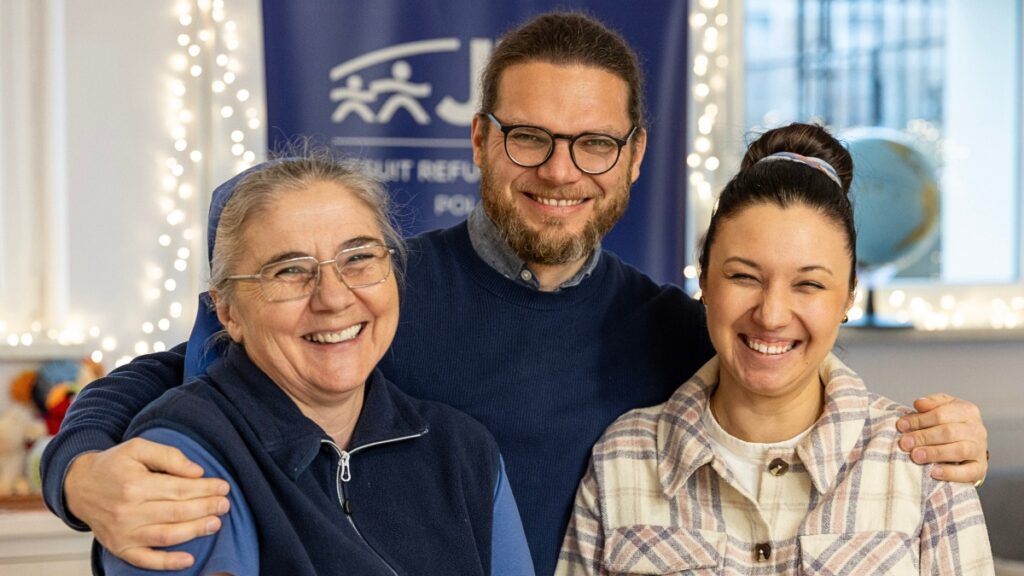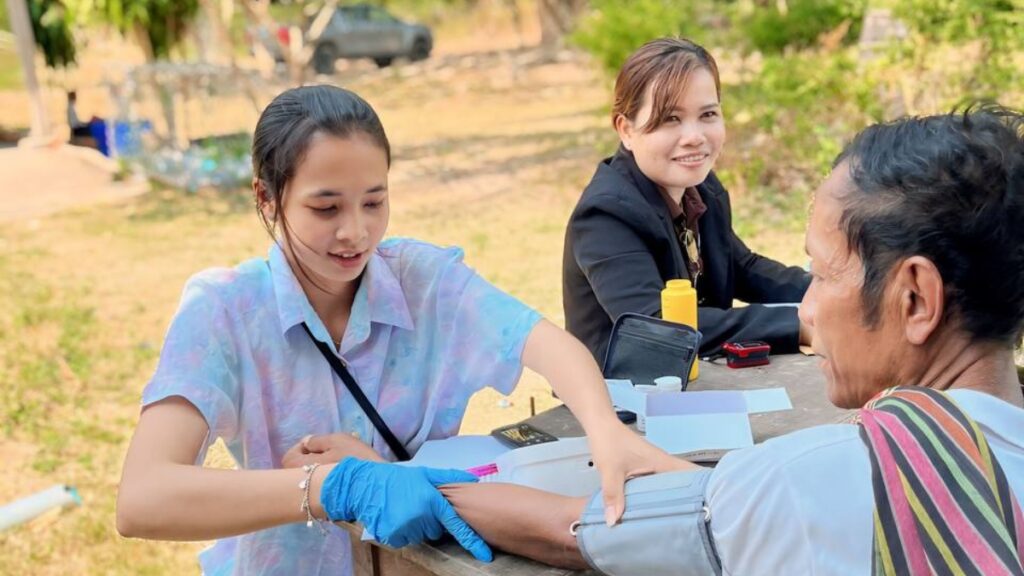In 2024, an estimated 673 million people (8.2% of the global population) faced hunger, while in 2022 the world wasted a staggering 1.05 billion tonnes of food (19% of all food available to consumers). This contradiction is not just waste; it is, as Pope Francis reminded us, “a violation of human dignity.”
As we approach World Food Day on 16 October, we are reminded of the urgent need for new ways of thinking about food — not as a commodity to be wasted, but as a gift to be shared.
For families in Timor-Leste, the crisis is felt acutely: nearly half of children under five are malnourished, and two-thirds of families face seasonal food shortages.
With help from supporters like you, Francisco, a 40-year-old father of six living in Timor-Leste’s countryside, is leading change. As team leader for 43 households in the Food Security program run by Jesuit Social Service (JSS), our project partner in Timor-Leste, Francisco has witnessed transformation — not only in farming practices but in the mindset of his community.
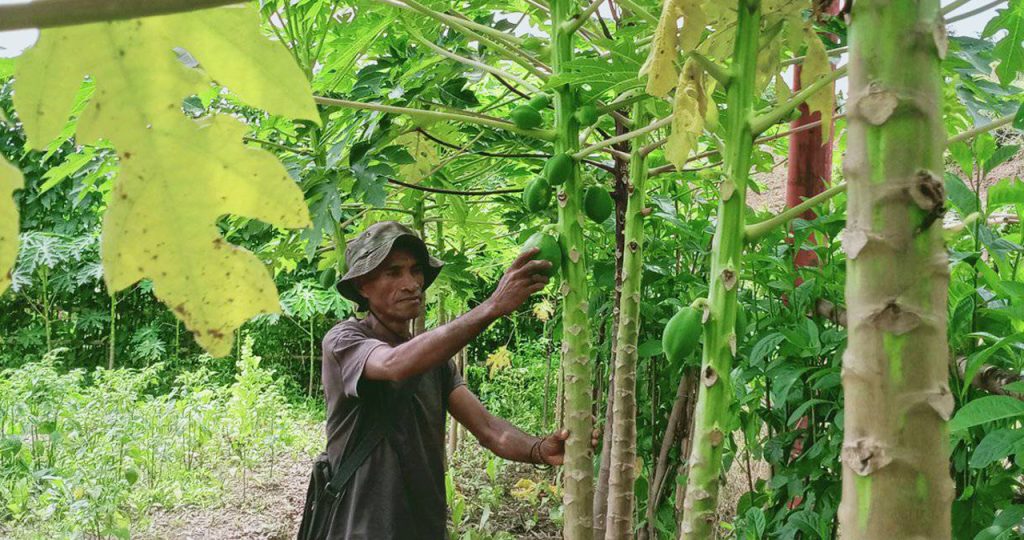
Before the program, local farmers relied on chemical fertilisers, cut down trees for farmland, and even sold cattle to buy chemicals, depleting both the soil and their livelihoods. Water shortages during the dry season worsened their struggle.
Since partnering with JSS, Francisco and his neighbours have embraced organic farming techniques. They now make fertiliser from manure, grass, and leaves, and produce local microorganisms (MOL) to enrich the soil. Instead of burning land, they are planting trees and protecting water sources. As Francisco explains, “These practices improve soil quality, provide healthier food for our families, and teach us to use natural resources wisely without causing harm to the environment.”
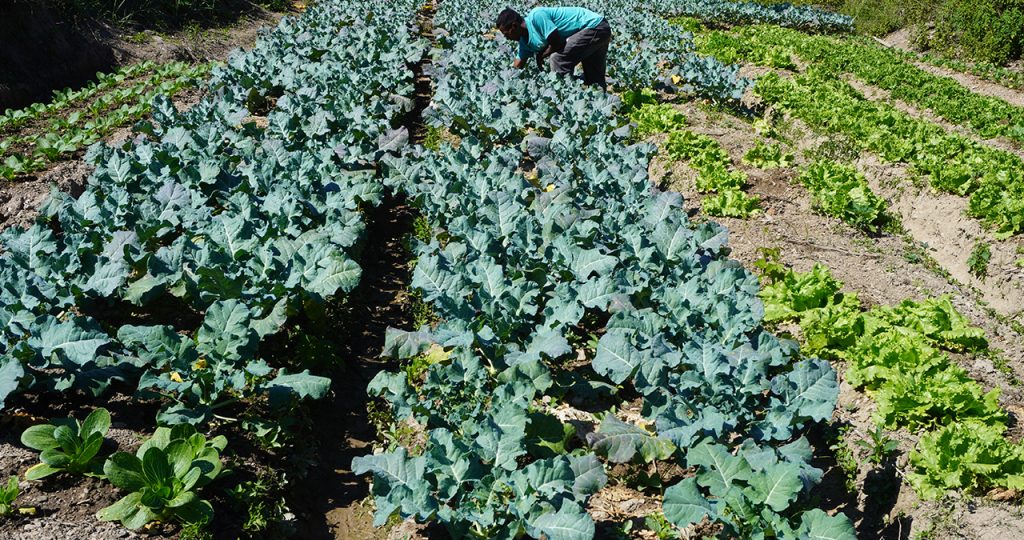
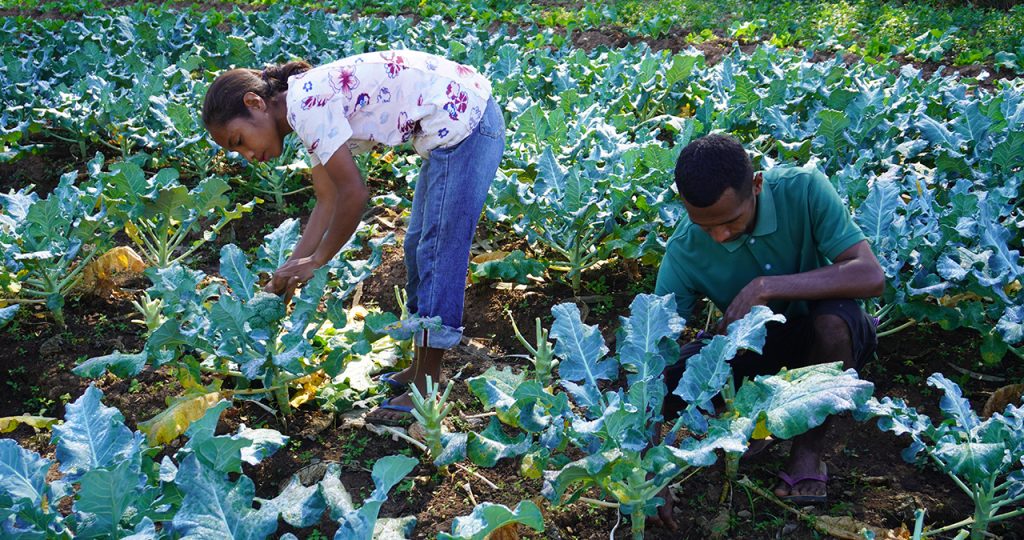
Francisco and other farmers also participated in a training camp, where they gained valuable knowledge about environmental care and practical ways to address climate change. This experience deepened their awareness of sustainability and strengthened their commitment to protecting creation for future generations.
The changes are visible: water sources now last longer, farming is possible year-round, and families are eating more nutritious food. Though challenges remain — particularly during the dry season — Francisco continues to motivate his community, reminding them that sustainable farming is both a duty and a legacy.
“I believe that together, we as a community can care for the environment and produce safe, organic food for our families and future generations.”
Thanks to your generosity, Francisco’s leadership is sowing seeds of hope, dignity, and resilience in Timor-Leste.

